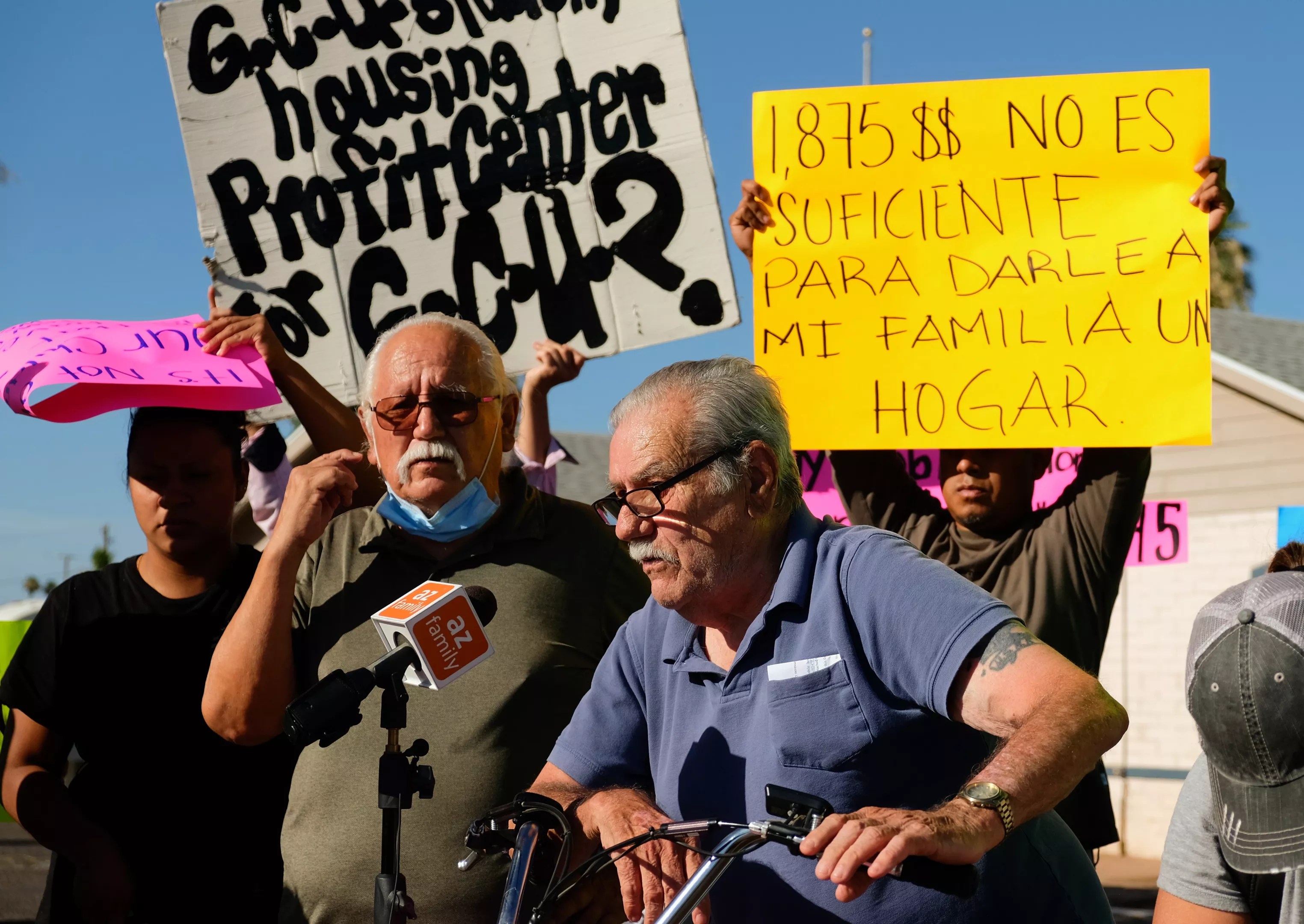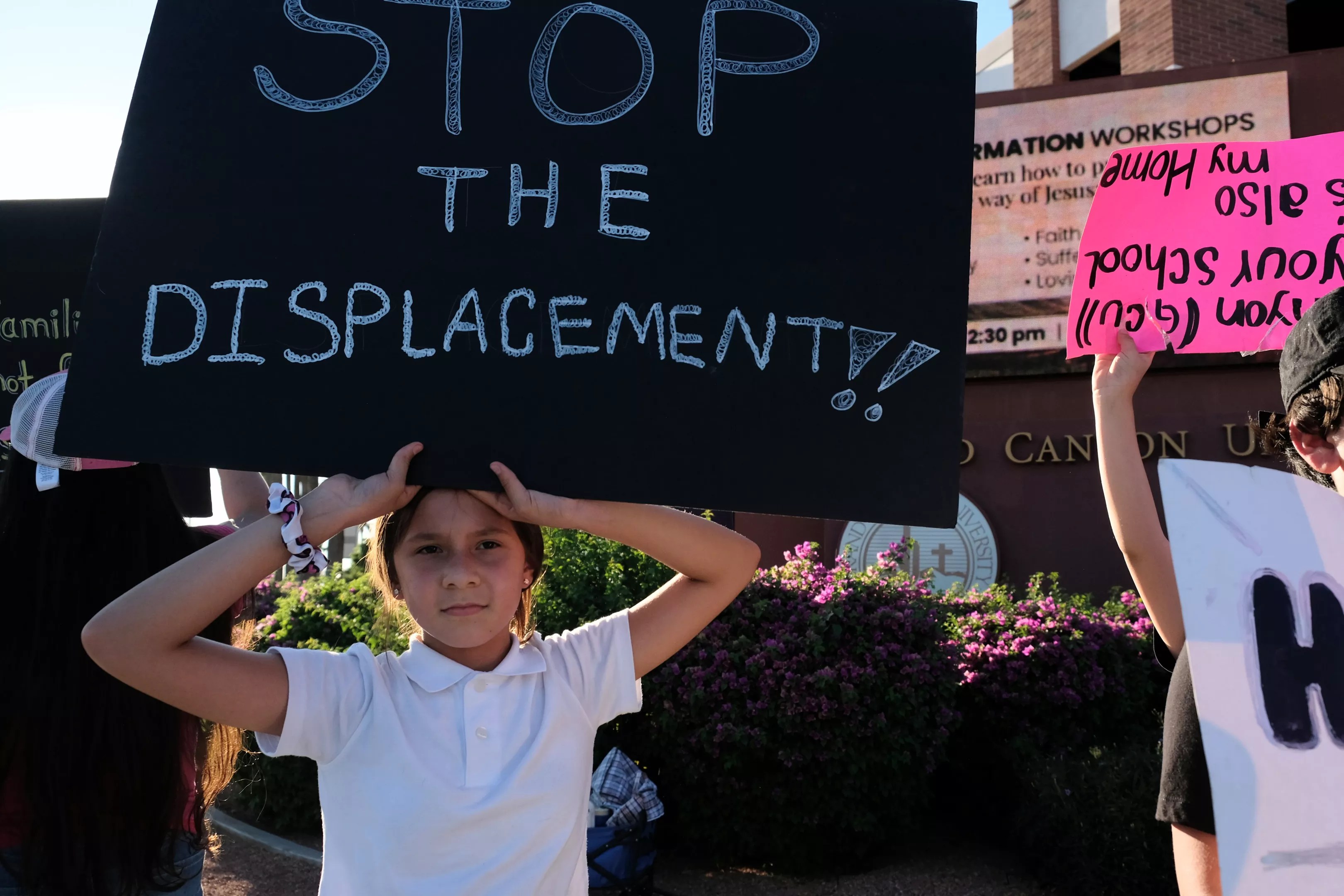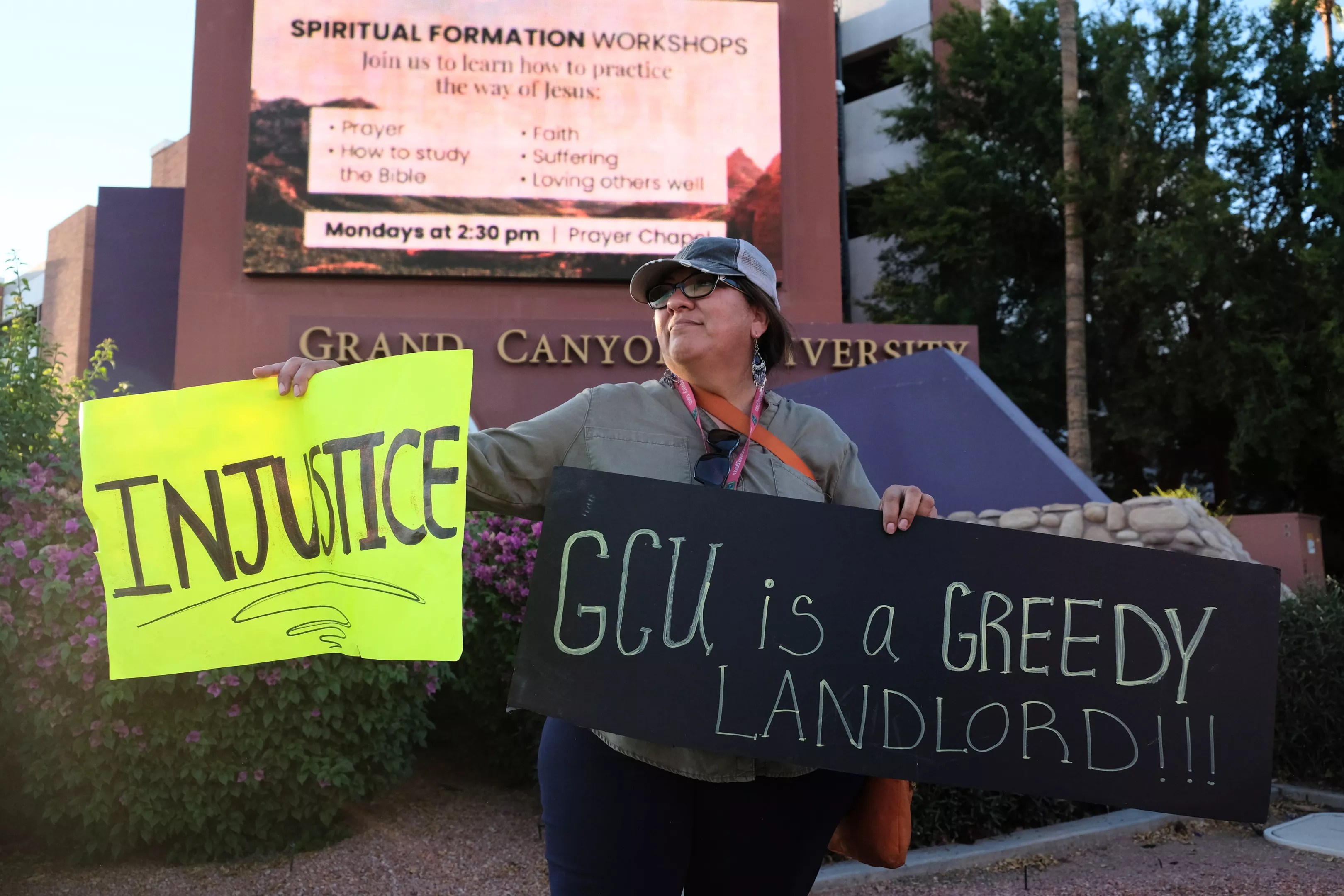
Katya Schwenk

Audio By Carbonatix
The city of Phoenix is considering several ways to halt evictions that are displacing mobile home park residents across the Valley.
At an emotional meeting of the City Council’s Community and Cultural Investment Subcommittee on Monday, councilmembers heard from residents at three different Phoenix trailer parks that are facing evictions in the coming weeks. In more than an hour and a half of testimony, residents and supporters pleaded with the elected officials to take action to stop the evictions.
Councilmembers Betty Guardado, Carlos Garcia, and Yassamin Ansari voted to bring several policy suggestions to the full city council, including a moratorium on any development of the three mobile home parks facing evictions.
“It’s true that landlords and their friends at the state Capitol have tied the hands of the city in many different ways,” Guardado said at the meeting. “But the residents who have brought us their testimony today and over the past months deserve real leadership.”
The policies proposed by Guardado, Garcia and Ansari will have to be approved by the full council – which may be a challenge. For residents of the three mobile home parks discussed at the meeting, time is ticking.

Children who live at Periwinkle Mobile Home Park joined the protest in September 2022.
Katya Schwenk
‘Traumatized’
The residents who testified Monday included homeowners at the Periwinkle Mobile Home Park in west Phoenix, which is owned by Grand Canyon University. In April 2022, the university gave residents just six months to leave their longtime homes in order to redevelop the property. That deadline has now been extended to May 28, 2023.
The other two parks are Las Casitas – which is located at 18th Avenue and Buckeye Road and is now called Beacon – and Weldon Court in midtown. Residents have until May 1 and April 1, respectively, to leave.
A total of 123 households will be affected by the displacement of the three parks. Of those, only 17 have found new housing so far – with just weeks remaining before the evictions.
“We’re very traumatized right now,” Alondra Ruiz Vazquez, a resident of the Periwinkle Mobile Home Park, said at the meeting. The looming eviction is causing heightened anxiety for residents, some of whom already have been struggling with health issues, she told the council.
Ruiz Vazquez has been fighting for months to organize Periwinkle residents against Grand Canyon University, alongside longtime community organizers Sylvia Herrera and Salvador Reza, both from the advocacy group Barrio Defense Committees.
The residents have won some concessions from GCU – like promises of compensation and an extended move-out deadline. But it’s not enough, Ruiz Vasquez and others said.
Although most residents own their trailers, they don’t own the land on which the trailers sit. Additionally, it can be nearly impossible to relocate the parks’ aging mobile homes as many are too old to be moved without sustaining damage. And even if a mobile home was fit to be moved, the process is expensive, and there are limited places to go.
Indeed, Michael Trailor, the executive director of Trellis, a nonprofit that provides housing navigation services to some of the residents who testified on Monday, told councilmembers that moving the mobile homes to a new location was not a viable option for any resident so far. “We are not going to be able to move any mobile homes to my knowledge,” he said.
That leaves homeowners in the three mobile home parks with few options but to abandon their trailers and find new places to live. Some residents will qualify for a small pool of money – $1,875 per trailer, and $3,125 for multi-section mobile homes – from the Arizona Department of Housing’s fund for mobile home park residents. The fund offers more money – between $7,000 and $12,500 – to help with relocation expenses. Still, for most of the residents, relocation simply is not an option, even with the stipends.

Alondra Ruiz Vazquez is one of several dozen residents who in September 2022 protested Grand Canyon University’s plan to evict them from Periwinkle Mobile Home Park.
Katya Schwenk
Moratorium, Zoning Restrictions Proposed
For developers, purchasing mobile home parks in the Valley can be a lucrative investment strategy. But that comes at a cost to the longtime residents, who are being evicted. To combat this, the city councilmembers proposed several ways to stop the wave of mobile home park development on Monday.
Four policy proposals are headed to the full city council for a vote, after Guardado, Garcia and Ansari unanimously agreed to move them forward.
The first is an 18-month moratorium on the development of the Las Casitas, Periwinkle, and Weldon Court properties, which is designed to prevent the evictions from taking place before other changes halting mobile home development go into effect.
The councilmembers also recommended that the city partner with a nonprofit to study the city’s mobile home parks. The city would then use the study to create a special zoning overlay, which would prevent property owners from redeveloping mobile home parks and changing the land use without city approval.
Ansari also proposed a new emergency fund, using $2.5 million of federal COVID-19 relief dollars, which would be used to help mobile homeowners secure new housing in such cases.
To go into effect, the policies will have to be approved by the full city council – meaning that Guardado, Garcia and Ansari will need at least two more councilmembers to join them to pass the policies. City staff has already raised some concerns about the zoning overlay and the development moratorium, arguing that state law protecting property rights could put the city at legal risk.
But the councilmembers resolved to move the policies forward regardless.
“What is happening to each one of you is unacceptable, absolutely heartbreaking, and simply wrong,” Ansari said.